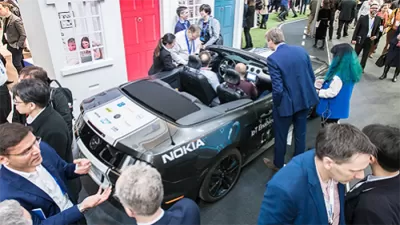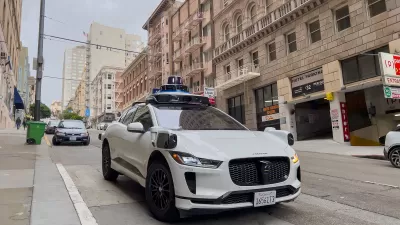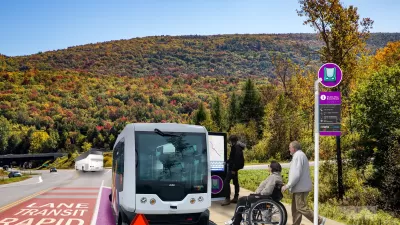Slashed budgets, executives heading for the exits, and delayed dreams—the autonomous vehicle industry is taking longer to get on the road than industry supporters expected.

“This is what happens when long-gestating new technology meets the short patience of public markets and harsh reality of rising interest rates,” writes David Welch for Bloomberg Hyperdrive.
The headline on the article is just as provocative, reading “Driverless Car Development Sets Ablaze a Bonfire of Billions.”
All in all, the promise of autonomous vehicles taking over the roads, relieving congestion, eliminating the need for parking, and ending traffic fatalities forever is still a pipe dream. And at such a cost. “Autonomous vehicle companies and suppliers have collectively spent around $75 billion developing self-driving technology, with scant sign of meaningful revenue emerging from robo-car services after all that cash incineration,” writes Welch.
A few examples of those ‘scant’ signs of self-driving progress can be identified in the news of recent weeks—like Waymo launching an autonomous taxi pilot in Los Angeles, a rural shuttle program in Minnesota, and an autonomous shuttle program to replace Jacksonville's aging monorail system.
In the meantime, however, autonomous vehicle companies are slashing budgets, pulling the plug, and saying goodbye to high ranking executives. “The lesson is that technology as radical as robotic driving was always better off in the incubators of daring venture capitalists, not the portfolios of trigger-happy stock traders,” writes Welch.
FULL STORY: Driverless Car Development Sets Ablaze a Bonfire of Billions

Alabama: Trump Terminates Settlements for Black Communities Harmed By Raw Sewage
Trump deemed the landmark civil rights agreement “illegal DEI and environmental justice policy.”

Study: Maui’s Plan to Convert Vacation Rentals to Long-Term Housing Could Cause Nearly $1 Billion Economic Loss
The plan would reduce visitor accommodation by 25% resulting in 1,900 jobs lost.

Planetizen Federal Action Tracker
A weekly monitor of how Trump’s orders and actions are impacting planners and planning in America.

Waymo Gets Permission to Map SF’s Market Street
If allowed to operate on the traffic-restricted street, Waymo’s autonomous taxis would have a leg up over ride-hailing competitors — and counter the city’s efforts to grow bike and pedestrian on the thoroughfare.

Parklet Symposium Highlights the Success of Shared Spaces
Parklets got a boost during the Covid-19 pandemic, when the concept was translated to outdoor dining programs that offered restaurants a lifeline during the shutdown.

Federal Homelessness Agency Places Entire Staff on Leave
The U.S. Interagency Council on Homelessness is the only federal agency dedicated to preventing and ending homelessness.
Urban Design for Planners 1: Software Tools
This six-course series explores essential urban design concepts using open source software and equips planners with the tools they need to participate fully in the urban design process.
Planning for Universal Design
Learn the tools for implementing Universal Design in planning regulations.
Caltrans
Smith Gee Studio
Institute for Housing and Urban Development Studies (IHS)
City of Grandview
Harvard GSD Executive Education
Toledo-Lucas County Plan Commissions
Salt Lake City
NYU Wagner Graduate School of Public Service





























